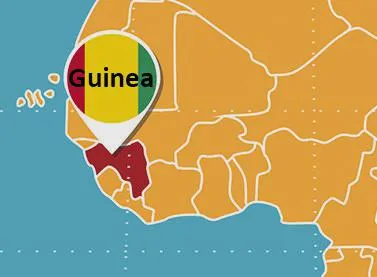
Behind the story: why so many Guineas?
The English ‘Guinea’ may possibly come
from the Portuguese word Guiné which
originated during the mid-15th century.
The word Guinea was used to refer to the
lands owned by the Guineus, which was a
collective term for the African people who
came
from regions
south of
the Senegal
River. Many European colonists who arrived
in the Guinea region of West Africa applied
names such as ‘German Guinea’, ‘Spanish
Guinea’,
‘French Guinea’, or
‘Portuguese
Guinea’. Some countries retained portions of these names after independence. French
Guinea became Guinea, Spanish Guinea
became Equatorial Guinea, and Portuguese
Guinea became Guinea-Bissau. However,
German Guinea entirely dropped the Guinea
part of the name to become Cameron and
Togo. Papua New Guinea, located in southeast
Asia, was given its name by a Spanish explorer
who saw a resemblance of the people in Papua
New Guinea with those who he had seen
along the Guinea coast in Africa.